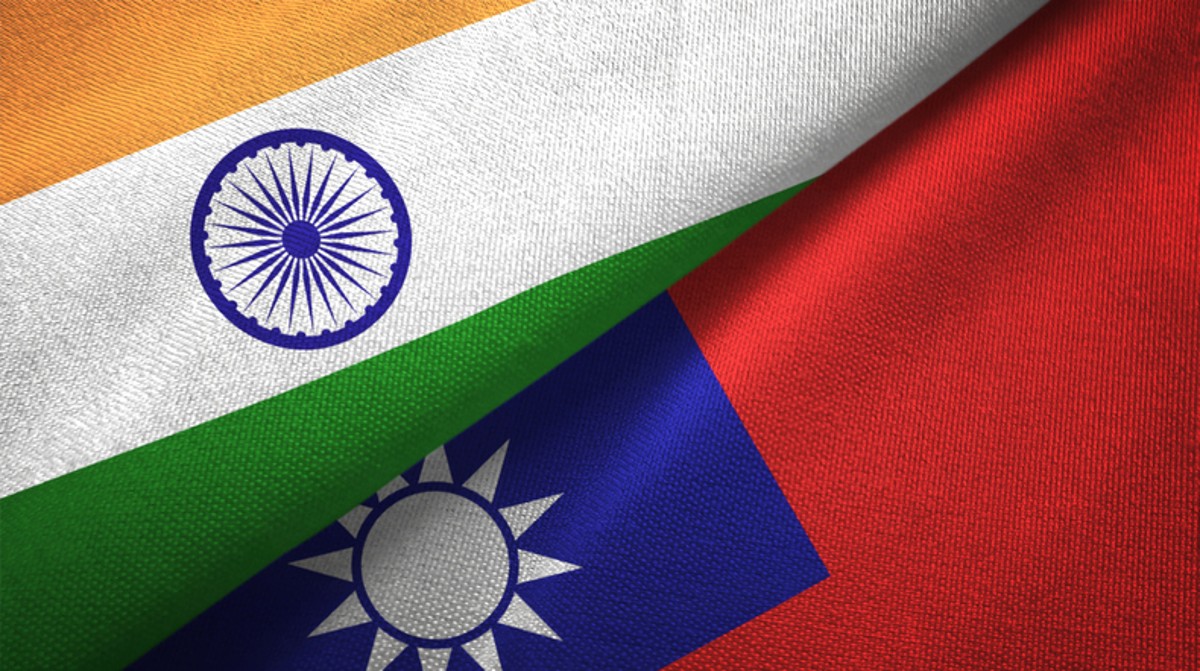Throwing caution to the winds, India took a decisive step when it signed an agreement with Taiwan to ease its labor shortage. Could the move incur China’s wrath and become a security issue for India if a China-Taiwan war erupts?
Braving China’s wrath and sidelining its One China principle, India sealed an agreement with Taiwan (often called Rogue state by Beijing) that aims to alleviate Taipei’s labor shortage. Signed on February 16, the pact between the two nations, signaling a potential bolstering of bilateral ties, focuses on recruiting Indian migrant workers to address critical workforce gaps in Taiwan.
While there is no response from China at the time of filing this report, the move has the potential to provoke a strong response.
According to Taiwan’s Ministry of Labor, a memorandum of understanding has been signed between the de facto embassies of both Taiwan and India in Taipei and Delhi, respectively. However, specifics regarding implementation are still pending resolution.
Specifics of the labor agreement with Taiwan remain undisclosed, though it came about through extensive negotiations. Talks on labor cooperation between the two nations started as early as 2020 but were interrupted by the pandemic, as reported by CNA. Negotiations resumed post-pandemic, with the key elements of the agreement largely settled by September.
Taiwan, renowned for its semiconductor production but grappling with an aging population, currently hosts approximately 700,000 migrant workers, primarily hailing from Vietnam, Indonesia, the Philippines, and Thailand. Many of these workers are employed in manufacturing roles or as caregivers for the elderly.
The ministry noted that the demand for labor in Taiwan, spanning sectors like manufacturing, construction, and agriculture, continues to outstrip local availability, leading to a yearly uptick in demand for migrant workers.
Characterizing Indian labor as reliable and industrious, the ministry disclosed plans for a preliminary pilot program. Depending on its success, further admission of Indian workers will be considered. However, the exact number of workers to be admitted will be determined by Taiwan.
In December 2023, reports emerged about the potential admission of up to 100,000 Indian workers into Taiwan. However, Taiwanese authorities promptly dismissed these reports.
The decision sparked protests in Taiwan at the time, with demonstrators calling on the government to revoke its plan. They argued that there was insufficient transparency in justifying the necessity of introducing workers from “yet another source country” and demanded a comprehensive evaluation of the decision.
Presently, around 2,700 Indian professionals are employed in Taiwan, predominantly in the high-tech sector, according to the Ministry of Labour.
Additionally, the ministry noted that approximately 18 million Indian workers are dispersed across various countries globally, including Australia, Japan, Singapore, the United States, the United Kingdom, and Saudi Arabia.
India-Taiwan Growing Relations
India, like most nations, lacks formal diplomatic relations with Taiwan, relying instead on Taiwanese representative offices functioning as de facto diplomatic missions. Correspondingly, New Delhi’s representation in Taipei, the India-Taipei Association, is overseen by a senior diplomat.
Despite maintaining a reserved stance on political engagement with Taiwan, India has witnessed a significant expansion in business ties with the island nation in recent years.
This economic relationship was underscored by Indian External Affairs Minister S Jaishankar during a dialogue with journalist Lionel Barber at Wilton Park in November 2023. Jaishankar highlighted the burgeoning economic and technological partnership between India and Taiwan, emphasizing collaborative efforts such as a mobility pact. His remarks underscored the depth of engagement between the two countries, reflecting an evolving dynamic of increased cooperation.
Taiwan has intensified its efforts to strengthen ties with New Delhi. Last year, Taipei revealed plans to enhance its presence in India by establishing a representative office in Mumbai.
With the sealing of the pact between the two nations, India has virtually abandoned its One China principle. Over the years, while India has not directly confronted China by openly siding with Taiwan, it has often sent out feelers to make Beijing aware of its change of stance. In August 2023, Admiral Karambir Singh of the Indian Navy, General M.M. Naravane of the Indian Army, and Chief of Air Staff R.K.S. Bhadauria of the Indian Air Force – all former service chiefs – were present at a security dialogue in Taipei, hosted by Taiwan’s Foreign Ministry.

Now, with around 100,000 Indian workers in Taiwan, there could be security issues. In addition to the tension that continues on the India-China border, India will have to worry about its citizens in Taiwan in the event of an all-out China-Taiwan war.
Taiwan’s strategic maneuvers come at a juncture marked by heightened tensions involving both India and Taiwan in their relations with China.
The escalating tensions with Beijing have prompted Taiwanese firms to seek opportunities beyond China, aligning with New Delhi’s efforts to attract manufacturers to diversify their supply chains to India.
Notably, Taiwan-based Foxconn, a major supplier to Apple, has established an iPhone manufacturing facility in Tamil Nadu and is planning another in Karnataka.
Indian authorities are also actively courting Taiwanese semiconductor companies to bolster their ambition of becoming a prominent chip manufacturing hub in Asia.
While Taiwanese companies currently have a relatively modest presence in India compared to other Asian nations, the landscape is poised for change as India emerges as a rapidly growing economy.
The bilateral trade between India and Taiwan has witnessed decent growth, surging from slightly over $1 billion in 2001 to reach $7.7 billion in 2021.
- Contact the author(s) at ashishmichel(at)gmail.com
- Follow EurAsian Times on Google News





